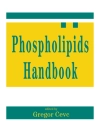The core message of this book is: computer games best realise affective interaction. This book brings together contributions from specialists in affective computing, game studies, game artificial intelligence, user experience research, sensor technology, multi-modal interfaces and psychology that will advance the state-of-the-art in player experience research; affect modelling, induction, and sensing; affect-driven game adaptation and game-based learning and assessment. In 3 parts the books covers Theory, Emotion Modelling and Affect-Driven Adaptation, and Applications.
This book will be of interest to researchers and scholars in the fields of game research, affective computing, human computer interaction, and artificial intelligence.
Innehållsförteckning
Foreword.- Preface.- Part I Theory.- The Aesthetic Motives of Play.- Affect Channel Model of Evaluation in the context of digital games.- Affective Involvement in Digital Games.- PART II – Emotion Modelling and Affect-Driven Adaptation.- Multimodal sensing in affective gaming.- Emotion Modelling via Speech Content and Prosody – in Computer Games and Elsewhere.- Comparing two commercial brain computer interfaces for serious games and virtual environments.- Psychophysiology in Games.- Emotion and Attitude Modeling for Non-player Characters.- Emotion-driven Level Generation.- Emotion-Driven Narrative Generation.- Game Cinematography: from Camera Control to Player Emotions.- From Sinewaves to Physiologically-Adaptive Soundscapes: The Evolving Relationship between Sound and Emotion in Video Games.- Emotional Appraisal Engines for Games.- Part III Applications.- Emotion and Body-based Games: Overview and Opportunities.- Posttraumatic Stress Disorder (PTSD) and the role of computer games in treatment of PTSD.- Understanding and Designing for Conflict Learning Through Games.- Games robots play: once more, with feeling.- Lovotics: Love and Sex with Robots.- Index.












